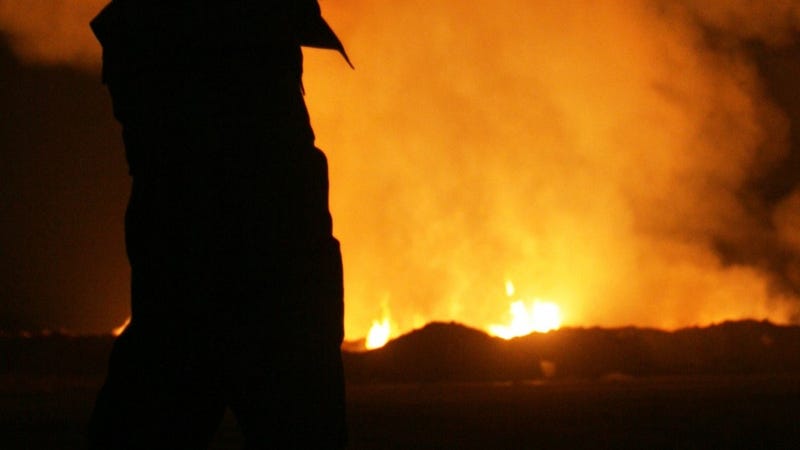
The House of Representatives Veterans’ Affairs Committee shined a spotlight on the ongoing issue of toxic-exposed vets during a roundtable discussion on Wednesday.
“The True Cost of our Promise to Toxic-Exposed Veterans” roundtable spanned more than three hours. During the session, veterans advocate and comedian Jon Stewart urged lawmakers to provide vets exposed to burn pits both money and resources.
“Our country exposed our own veterans to poison for years and we knew about it and we didn’t act with urgency and appropriateness,” he said. "Therefore, we've lost men and women who served this country. They've died."
Burn pits have been used at U.S. military installations for years. The designated areas are dedicated to burning everything from human waste to excess equipment and other trash.
According to Department of Veterans Affairs estimates, more than 3.5 million American service members were exposed to toxic fumes emanating from burn pits while they were deployed overseas over the past two decades. Nearly 25,000 post-9/11 veterans have submitted claims to the VA for a variety of respiratory diseases, cancers and other illnesses they say are directly related to that exposure.

Stewart was joined at the roundtable by representatives from 11 veterans service organizations, who discussed the Honoring Our Promise to Address Comprehensive Toxics or PACT Act. The bipartisan legislation recognizes toxic exposure as being a cost of war and was approved by the committee last summer. It has 70 co-sponsors.
The proposed legislation would designate 23 diseases, including asthma, chronic obstructive pulmonary disease (COPD), lung cancer, and emphysema as presumed to be related to battlefield environmental exposures in Iraq, Afghanistan, and elsewhere in the Middle East since 9/11, as well as those from earlier eras who have illnesses thought to be related to military service.
Committee chairman Mark Takano (D-Calif) expressed optimism in an interview with CBS’ Eye On Veterans that the PACT Act would be passed by lawmakers by the end of last year. That, however, did not materialize.
“It’s a new year, but I have not relented one bit on my promise to pass legislation to finally recognize toxic exposure as a cost of war this Congress. That’s why I’m grateful for the opportunity to host a roundtable next week to check in with Veterans Service Organizations and advocates on our efforts,” said Takano in a statement.

The Congressional Budget Office estimates that the legislation would cost $300 billion over 10 years - a number that concerns fiscal conservatives.
“We cannot renege on our responsibility to take care of these veterans because of any preconceived sticker shock,” Takano said during the roundtable.
Committee member Rep. Mike Bost (R-Ill) said he is committed to supporting veterans who have been exposed to toxins in a way that is fiscally responsible for future generations.
“Veterans are taxpayers too,” he said. “We should be mindful of how we spend their money on their behalf.”
Air Force and Afghanistan veteran Jen Burch, communications associate with Iraq and Afghanistan Veterans of America. argued that cost was not a factor when service members were sent to war by Congress and the White House.
“The time to act is now, for the sake of the current veterans and our future veterans,” she said.
Legislative Director for Veterans of Foreign Wars Patrick Murray noted that while opinions may differ on toxic exposure presumptives, everyone can agree that the current process is broken.
“It’s not helping veterans to the fullest extent,” he said. “We need to do something to fix that.”
Reach Julia LeDoux at Julia@connectingvets.com.


